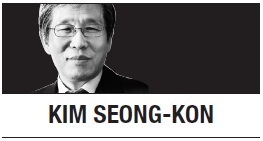
One of Aesop’s fables, “The Four Oxen and the Lion,” is a story about a lion that tries to attack four oxen in a field. The oxen warn each other and whichever way the lion approaches he is met by horns and so cannot harm them. One day, the oxen quarrel and graze separately. The lion easily picks them off one by one. The moral of this fable is “United we stand, divided we fall.”
Another Aesop’s fable, “The Bundle of Sticks,” also gives the same lesson, but more explicitly. Once there was a father whose sons often quarreled among themselves. To teach his sons a lesson, the father asks them to break a bundle of sticks. His sons cannot break the sticks when they are tied in a bundle. But they found that they could easily break them individually. The father says to them, “My sons, if you’re of one mind and unite to assist each other, you’ll be as this bundle, uninjured by all the attempts of your enemies; but if you’re divided among yourselves, you’ll be broken as easily as these sticks.”
Aesop’s fables remind us of the current situation of Korea, which finds itself hopelessly torn and divided into opposing factions, such as those who held candlelight vigils vs. demonstrators who waved the Taegeukgi (National Flag), the progressives vs. conservatives, or the left vs. right.
If divided, we will become weak and vulnerable. Suppose North Korea attacks us with a missile? We will not be able to defend ourselves because we are divided. When Japan offends us, we will not be able to protest either, for we are not united. What if the United States decides to pull out its troops? We cannot but helplessly watch from the sidelines because we are split between pro-America people and anti-America people. Now China is retaliating because we have decided to deploy the Terminal High Altitude Area Defense anti-missile system. And yet we are helplessly being pushed around because we are divided.
On June 16, 1858 at the Republican State Convention held in Springfield, Illinois, Abraham Lincoln delivered the following address to the Republican Party members in the Hall of Representatives. “If we could first know where we are, and whither we are tending, we could then better judge what to do, and how to do it. A house divided against itself cannot stand. I do not expect the Union to be dissolved -- I do not expect the house to fall -- but I do expect it will cease to be divided.”
Lincoln’s famous speech is still valid today. Indeed, how can a house stand if it is divided? In Lincoln’s speech, the word, “house” has a double meaning: the Republican Party or the Congress and a house. Watching our sharply divided National Assembly and our irreparably torn nation, one cannot but recall Lincoln’s words. United, we can defend ourselves from foreign aggression. Divided, we will end up losing our sovereignty again. United, nobody can break us. Divided, we will be easily broken.
Lincoln also emphasizes the importance of knowing where we are now and where we are headed. Regrettably, however, we do not seem to know where we are and where we are going. At least our political leaders should know, so they could steer us in the right direction. Unfortunately, many of our political leaders’ immediate concern is how to win the election at any cost, rather than to check whether we are moving in the right direction in the whirlwind of international politics.
Leaders are like the captain of a ship, who should be constantly alert to the ship’s bearings in the vast, perilous ocean. Alas! Currently we are like passengers in a ship without a captain caught in a heavy storm. Yet our first, second and third mates are busy fighting over the captain’s chair, not realizing the advent of the dark clouds and the approaching storm.
If there is no captain, inexperienced sailors will be in charge of the ship. The problem is that the green, clumsy amateurs are likely to sail the ship in the wrong direction and end up shipwrecked.
British journalist Michael Breen aptly pointed out the danger of letting the people take over the ship. In his article, “In Korean Democracy, the People Are a Wrathful God,” that appeared in Foreign Policy, Breen wrote, “The idea of the people being in charge seems easy to understand, but it is actually difficult to grasp, and accept as valid, when you come from a more law-based version of democracy.” Breen also highlighted that if people “rip through decision-making and the established law,” their country cannot be called a law-based society.
We should be united, not divided. Our first president, Rhee Syng-man, also emphasized the importance of unity in times of crisis, saying, “United we survive, divided we perish.” Unfortunately, we have not been able to learn the valuable lesson yet and are still hopelessly divided. We should be united because “a house divided cannot stand.”
By Kim Seong-kon
Kim Seong-kon is a professor emeritus of English at Seoul National University and president of the Literature Translation Institute of Korea. He can be reached at sukim@snu.ac.kr. -- Ed.





![[Exclusive] Hyundai Mobis eyes closer ties with BYD](http://res.heraldm.com/phpwas/restmb_idxmake.php?idx=644&simg=/content/image/2024/11/25/20241125050044_0.jpg)
![[Herald Review] 'Gangnam B-Side' combines social realism with masterful suspense, performance](http://res.heraldm.com/phpwas/restmb_idxmake.php?idx=644&simg=/content/image/2024/11/25/20241125050072_0.jpg)

